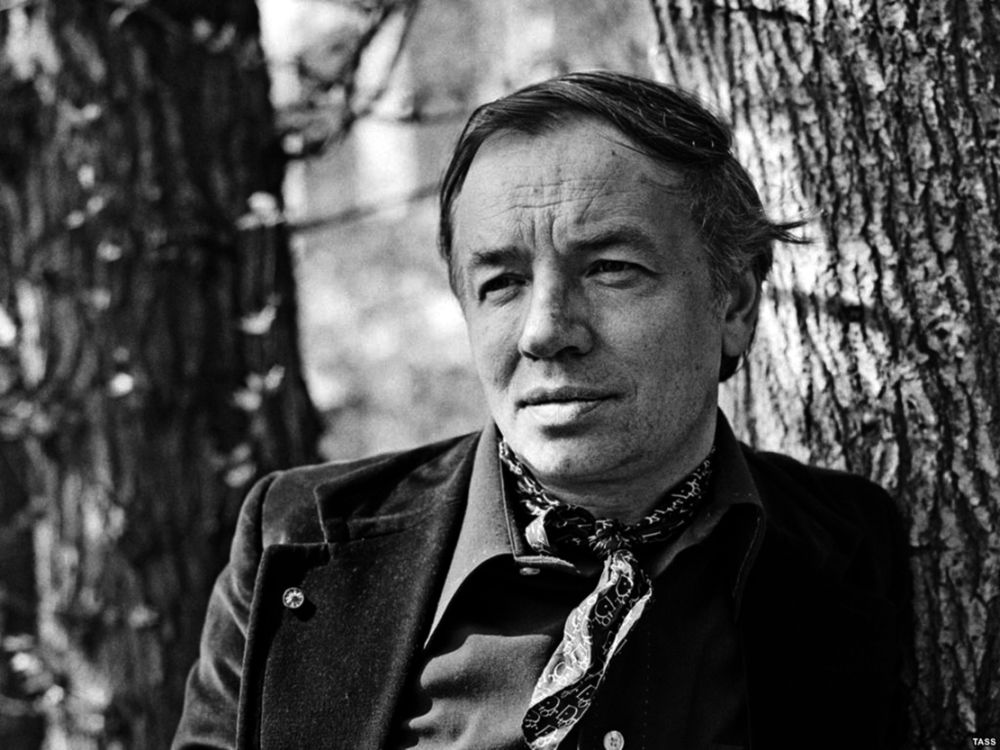Issue 78, Summer 1980

In 1963, Nikita Khrushchev personally warned Andrei Voznesensky to get out of Russia. The warning came too late. Public readings by writers including Voznesensky and Yevtushenko had already grown to the point that huge stadiums could hardly contain the audiences clamoring to hear the new poetry. Voznesensky’s reply was something new as well.
“I am a Russian poet,” he announced, “and I am not going anywhere.”
Since that moment, neither the Russian public’s love affair with Voznesensky’s poems nor the suspicions his work arouses in conservative Soviet circles has abated in the slightest. Although he has been in and out of official favor with his government, it is now an international audience which sponsors his devotion to poetry and his belief in its powers to change the world’s spirit.
Inevitably, his art has become as cosmopolitan as his fame; his Russian themes and sources flow easily into poems about strippers and soft drinks; from his visits to Europe and America over the last fifteen years, his poems are filled with references to Marilyn Monroe, blue jeans, Paris motorcycle gangs (which he calls “hellhounds with pisspots on their heads”).
He is a small man—about the size of a Beatle—with firm Slav features. When he reads, his voice is equal to every music his language offers, and he whips his poems toward the audience with a right arm like a tweed cobra; he delivers his lines with a passionate, almost frightening intensity. During performances, crowds have been known to rush the podium to touch the cuffs of his trousers; after them, poetry groupies seek the kind of backstage benediction Dylan Thomas used to like to give. His name shows up in literary journals while his face appears in fashion magazines. He is a legend in Russia; he is recognized in small airports in the American South.
In the dark, in the huge sports arena,
fourteen thousand great bards are packed tight.
Now I, the last poetry reader,
will step into the glare of the lights.
INTERVIEWER
In 1963, you and Yevtushenko and some of the other poets were Russia’s equivalent of the Beatles.
ANDREI VOZNESENSKY
Yes. That was when rock and roll was forbidden in Russia. Suddenly young people who were longing for that kind of thing started coming to our readings in sports stadiums and applauding for us as if we were rock stars. We would find ourselves reading poems for 14,000 people. Now those who want to hear folk music or rock music can have it, and I’m happy to see poetry separating itself from that.
INTERVIEWER
With so many rock bands in Russia now, can you say whether the death of Elvis Presley had very much impact? Is he taken seriously?
VOZNESENSKY
Certainly not seriously. But for many young people he was a symbol of mass involvement with rock, of the internal rhythm of the human being.
INTERVIEWER
One reason I asked is because you became famous when you were very young, and in the West, people who get famous early in life, for example Presley or the Beatles, find it impossible to continue later on at their original levels of energy.
VOZNESENSKY
Yes. It’s very strange to me to be talking about my own fame—certainly I am known, yes. I don’t worry so much about being popular. In the beginning, you see, we were a group, an angry group of younger poets like Akhmadulina and Yevtushenko and myself. It is a Russian tradition to listen to poetry, but before us there had been no big audiences. A poet didn’t sell many copies of a book of poems. If a poet sold a thousand copies, he was very happy. Then we began these readings, and the audiences grew—at first small audiences, and then several hundred people, and then finally as many as 14,000 in a stadium; it was like a sport. For me, it was a little boring. Because it’s impossible for 14,000 people in a soccer stadium to hear you. It’s impossible to speak intimately.
INTERVIEWER
Is there a Russian Bob Dylan?
VOZNESENSKY
There are several.
INTERVIEWER
I ask because at least some of Dylan’s work is accorded the status of poetry—
VOZNESENSKY
Certainly; but as I said, I’m now more interested in the distinctions between poetry and rock.
INTERVIEWER
Is there any similarity between the audiences that would go to hear Dylan and yours in the Soviet Union?
VOZNESENSKY
It is impossible to compare American with Russian audiences. In Russia I don’t need advertising. They put a small piece of paper on a door somewhere announcing a reading and that’s enough; in Russia everybody talks to everybody else, word gets around, certainly in Moscow, and everybody comes, even if they don’t like poetry, just to look at you. But here, for example, if you stop somebody’s car and say, “A Russian poet wants to read,” you hear, “What? A Russian poet? Read a book? What?”
INTERVIEWER
Even so, you have been very fortunate in having your works translated into English by some of our best writers.
VOZNESENSKY
Yes, I work with them. I especially like translations by W. H. Auden, Stanley Kunitz, and William Jay Smith. But many others, too—all are very good. I’ve learned a lot of new English words that way. I learned some new words on this tour. Speeding!—I like this word. I didn’t know it before. And I always knew the word fuck off, but I didn’t know fuckup. So on this trip, I have two new knowledges: Speeding and fuckup. Fuckup I like very much.
INTERVIEWER
You tell a fuckup to fuck off.
VOZNESENSKY
Certainly, yes.



